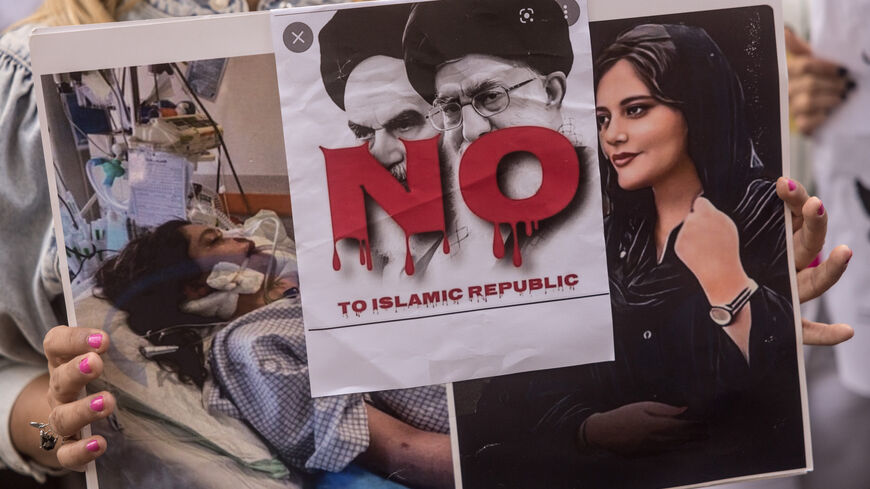TEHRAN — Iran's state-run Al-Alam news network on Sunday dismissed reports that the Islamic Republic's controversial morality police, in charge of implementing mandatory hijab rules, has been abolished.
Al-Alam was addressing extensive coverage of remarks by Iran's hard-line Chief Prosecutor Mohammad Jafar Montazeri, who appeared to suggest that hijab police was no longer operating.
"The morality police has been closed down by the very institution [Interior Ministry] which introduced it," Montazeri had announced at an event in Tehran on Saturday.
Jafari's brief comment was quickly picked up by Western media as a possible sign that the ruling establishment was backtracking on the long-standing and once unchallenged hijab rules, anger over which has thrown the country in a state of deadly unrest for 11 weeks now. The protests erupted on Sept. 16, when Iranian woman Mahsa Amini slipped into a coma and died after her arrest at the hands of a morality police patrol in Tehran.
Whether or not the prosecutor's statement meant an official end to the morality police mission has yet to be clarified. Al-Alam's report underlined that "no Iranian official has confirmed such a decision," suggesting that the Interior Ministry remains the only institution authorized to make such an announcement.
The report argued that Montazeri had been "misunderstood," since in the same speech he declared that the Iranian judiciary will continue its mission of "control and oversight of social behavior."
The so-called guidance patrol or morality police, in charge of the public enforcement of the Iranian government's version of hijab, has been operating under the Interior Ministry since 2006, when hard-line president Mahmoud Ahmadinejad was in office. Yet the Iranian public was no stranger to the public implementation of hijab at the time. To many, it was a rebranding and re-emergence of 1980s patrols working under the much-feared Islamic Revolution Committee, which had earned notoriety for its level of public brutality with strict inspections and arrests.
The cleric's comments have unsurprisingly turned into a trending debate on social media. Some have found it as a message that the hard-line establishment is ultimately heeding calls for reform. Others, however, assert that even if the morality police is written off, the protesters' demands have already transcended the issue of hijab, as they are seeking the very overthrow of the Islamic Republic which, in their view, has proven its "irreformable" nature over the years.
"The prosecutor's comments about the 'closure of the morality police' has led to the misunderstanding that the Islamic Republic has retreated from its position on mandatory hijab. It hasn’t," wrote London-based analyst Hossein Bastani. "The prosecutor, in fact, had a bone to pick with the police, [as] they are exhausted and not continuing their hijab controls in simultaneity with their crackdown on the protesters."
At least 470 protesters, among them 64 minors, have been killed in the state's push to quell the unrest, according to the Human Rights Activists News Agency.
For the first time since the outbreak of the protests, Iranian authorities released their official death toll on Saturday. With no precise breakdown, the State Security Council put the figure at 200, noting that it covered security personnel, "rioters," some "innocent" civilians, and individuals who were victims of "plots" by dissident groups.
The statement did not hint at responsibility lying with government forces, nor did it offer promises of justice to the families of the killed protesters.








